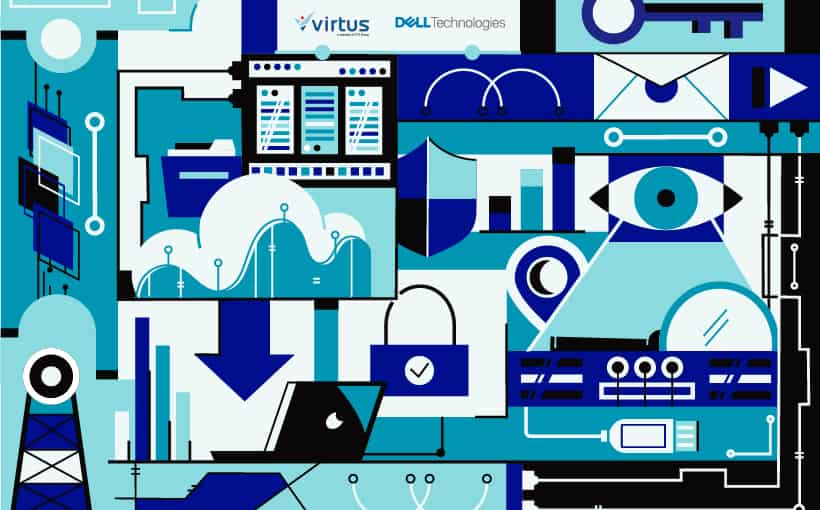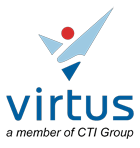Business innovations undoubtedly have an impact on the need for innovative storage solutions to meet a variety of purposes. Software Defined Storage (SDS), one of the key elements, may be the best option for business data storage requirements.
For good reason, Software Defined Storage enables consumers and businesses to isolate or abstract storage resources from the underlying hardware platform. Making storage resources programmable may undoubtedly offer increased flexibility, efficiency, and scalability.
Since it can be automated, this method enables SDS to become a crucial component of the software-designed data center (SDDC) architecture. Explore more about Dell Technologies' most recent software updates and software defined storage in this article.
How Software Defined Storage Works?
Data storage resources are abstracted from the underlying physical storage hardware in software-defined storage, allowing for more flexibility. Fast and automated storage can adjust to changing business demands due to resource flexibility and programmability.
The program's features include automatic provisioning and reassignment of storage capacity as well as policy-based resource management. This characteristic enables SDS to accommodate SLA and QoS, making it simpler to meet security, governance, and data protection requirements.
When correctly managed, SDS may enhance the performance, availability, and effectiveness of corporate applications and data storage requirements.
Benefits of Using Software Defined Storage
Software Defined Storage offers the following advantages as a data storage solution.
– Future-proof due to independence from lockouts with hardware vendors.
– Automation and programmability.
– Easier scalability and faster changes.
– Increased efficiency.
Read More: Here's Why You Should Reinvent Your Products with Dell Technologies OEM Solutions
Types of Software Defined Storage
Here are a few cases of software defined storage that can handle many storage types.
– Hypervisor based.
– Containers based (eg, running in Docker containers).
– Scale-out unstructured data storage.
– A distributed file system for offloading object storage.
– HCI software (storage combined with network, compute, and virtualization software in the same package).
Use Cases of Software Defined Storage
Following are four scenarios where Software Defined Storage can be applied.
Remote Office or Branch Office (ROBO)
Utilize current hardware (servers) for easier deployment and maintenance while getting a higher return on investment.
Sturdy System
Tactical situations, first-aid circumstances, difficult surroundings, and difficult conditions.
Hybrid Cloud Implementation
The same data management platform can be used to manage implementations in both on-premises and private cloud settings, negating the need for additional tools, reporting, and training.
Data Center Infrastructure Modernization
Storage with policies as part of infrastructure modernization initiatives.
Read More: PowerProtect Backup Appliances Provide Your Enterprise Data Backup Solution
Dell Technologies Introduces New Software Defined Storage

Dell Technologies offers PowerStore 3.0, the most recent storage software upgrade, in order to meet the wide range of customer storage demands. More than 120 new capabilities have been added to PowerStore 3.0 compared to the previous version as a result of extensive study by the Dell Technologies team.
In virtue of the three Product of the Year awards and 12,000 successful installations in 90+ countries with 50 million hours of operation of PowerStore's storage predecessor, Dell Technologies decided to provide an improved version for PowerStore 3.0. In its most recent edition, Dell Technologies acknowledges that organizations today employ primary storage most frequently as mid-range storage to preserve the continuity of crucial data.
PowerStore 3.0 is a mid-range storage product featuring storage capabilities and technology that may aid users in expanding their businesses through a variety of configuration options and features. Additionally, clients can expand and modify the needed capacity in accordance with company changes.
All-NVME storage, which may considerably boost storage performance, and inline dedupe compression, can boost storage efficiency and lower corporate costs, are just two of the new PowerStore 3.0 features. Then there are scale-up and scale-out features, AppsOn, container architecture, data resilience engine, and other new features that can assist the scaling of client data.
PowerStore 3.0 is a cutting-edge storage solution that clients can use to grow their businesses. It is the result of extensive study. Customers receive improved data thanks to full hardware changes for the second generation. Option to increase high-capacity NVMe enclosures, install faster Intel CPUs on client devices, and allow networking with 100GbE IO—all while preserving performance and encouraging investment.
Benefits of Dell Technologies' New Software Defined Storage Solution
For its newest software-defined storage system, Dell Technologies undoubtedly offers several enhancements over its predecessor. The following benefits are missing from its prior storage solutions.
Faster Performance
The most recent Powerstore software's improvement additionally boosts IOPS standard performance by up to 50%. Copy actions were accelerated up to 10 times, and writing was 70 percent quicker.
Higher Scalability
Business growth is undoubtedly requiring flexible scalability in storage, which the most recent PowerStore software version can provide. Dell's most recent storage solution, which includes the entry level PowerStore 500 series, boosts the maximum capacity by up to 66 percent, to 17PBe per cluster.
NVME Ecosystem
It is made possible for Dell PowerStore to be improved with NVME/TCP support for backend storage and smart fabric storage software such that connection speed to the network is 73% better and 50% more efficient mainly to the usage of All-NVME disks.
Get Dell Technologies' News Software Defined Storage at VTI
Time to provide a storage solution with strong performance and features in line with your requirements and the size of your company. Virtus Technology Indonesia (VTI), trusted advanced partner of Dell Technologies in Indonesia, offers Software Defined Storage solutions from Dell Technologies.
In order to save you from making errors, the Virtus IT team will assist you at every level, from consultation through deployment, management, and after-sales support. Contact marketing@virtusindonesia.com for more information about Virtus' Dell Technologies solutions.
Author: Ervina Anggraini
Content Writer CTI Group



























